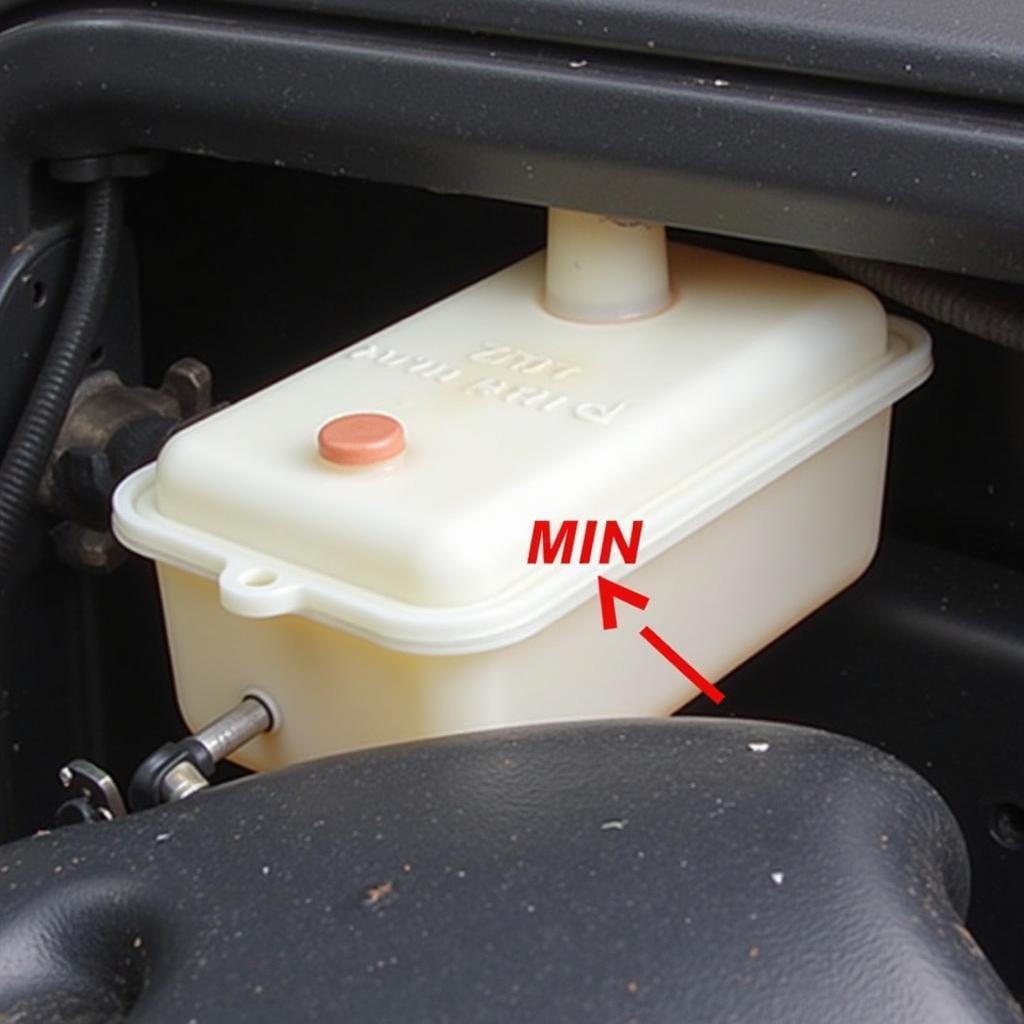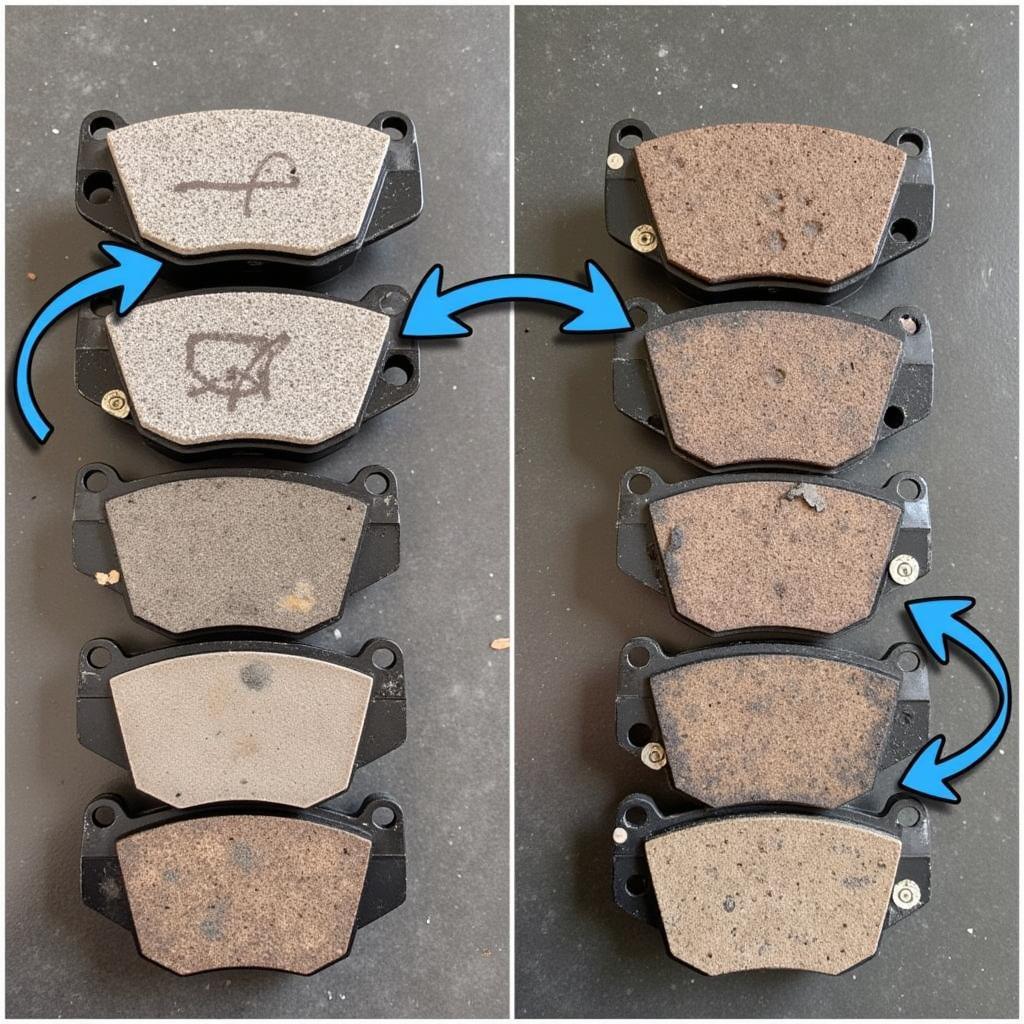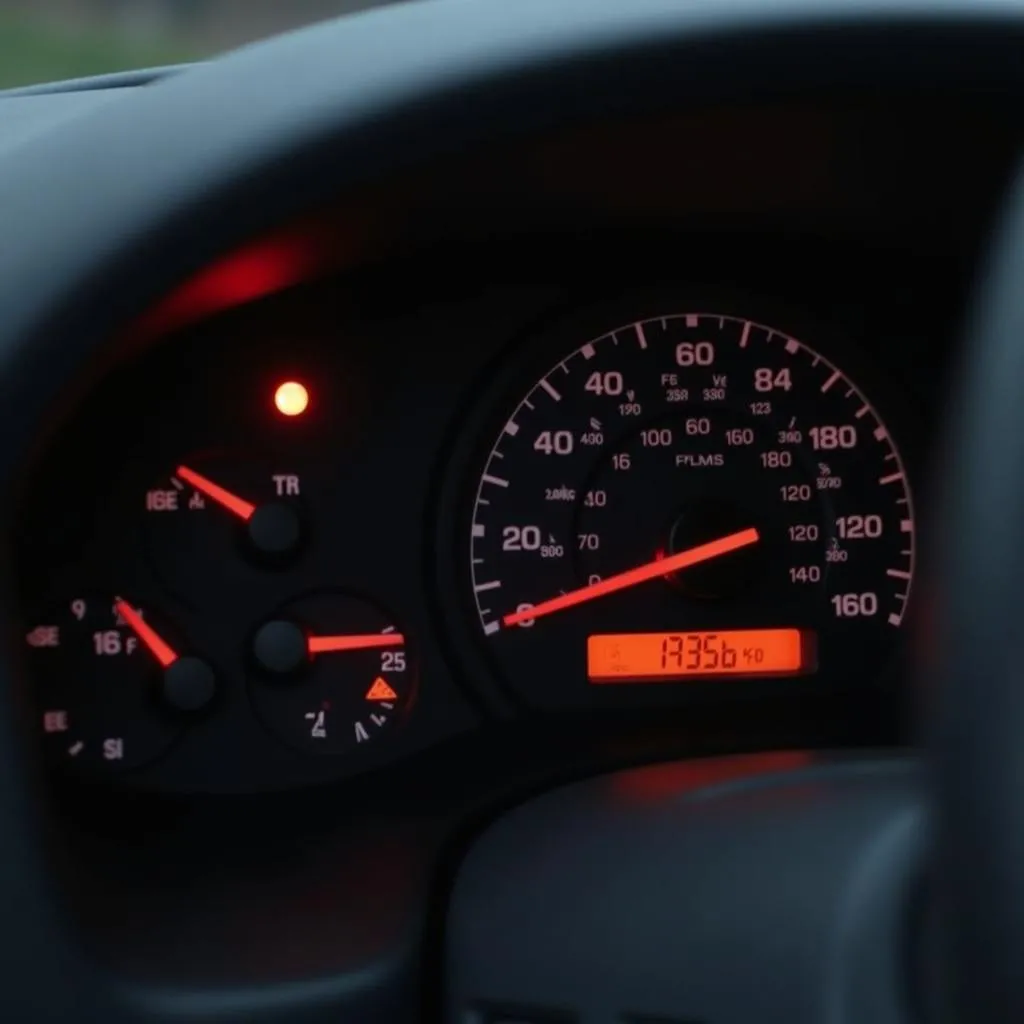Your 1999 Jeep Grand Cherokee’s brake warning light is a crucial safety feature that shouldn’t be ignored. When illuminated, it signals a potential issue with your vehicle’s braking system, requiring your immediate attention. This article will delve into the common causes behind this warning light in a 1999 Jeep Grand Cherokee and provide you with potential solutions to address them.
Understanding Your Jeep’s Brake Warning System
Before we dive into the specifics, it’s important to understand how your Jeep’s brake warning system functions. The warning light is connected to several components, including:
-
Brake Fluid Level Sensor: This sensor monitors the brake fluid level in the master cylinder. If the fluid level drops below a safe threshold, the warning light will illuminate.
-
Parking Brake Switch: Engaging your parking brake activates a switch that triggers the warning light. This serves as a reminder to disengage the parking brake before driving.
-
ABS System: If your Jeep Grand Cherokee is equipped with an Anti-lock Braking System (ABS), a malfunction within the system can also trigger the brake warning light.
Common Causes of a Brake Warning Light in a 1999 Jeep Grand Cherokee
Low Brake Fluid Level
One of the most common causes of an illuminated brake warning light is a low brake fluid level. Brake fluid is essential for transmitting the force applied to the brake pedal to the wheels, enabling your vehicle to stop.
Possible Reasons for Low Brake Fluid:
-
Worn Brake Pads: As brake pads wear down, the brake calipers need to extend further to apply the same braking force. This extension requires more brake fluid, leading to a drop in the master cylinder.
-
Brake Fluid Leak: Leaks in the brake lines, hoses, calipers, or wheel cylinders can result in a loss of brake fluid.
Solution:
If you suspect low brake fluid, carefully check the fluid level in the master cylinder reservoir. If the level is low, adding brake fluid might temporarily address the issue. However, it’s crucial to identify the underlying cause, such as worn brake pads or leaks, and have them repaired by a qualified mechanic.
 Low Brake Fluid Level in a Jeep Grand Cherokee
Low Brake Fluid Level in a Jeep Grand Cherokee
Engaged Parking Brake
Sometimes, the simplest explanation is the most likely. If you’ve inadvertently left your parking brake partially or fully engaged, the warning light will remain illuminated.
Solution:
Ensure the parking brake is fully disengaged. If the light stays on despite a disengaged parking brake, there might be an issue with the parking brake switch itself.
Worn Brake Pads
As mentioned earlier, worn brake pads can indirectly cause the brake warning light to come on due to the resulting low brake fluid level. However, some 1999 Jeep Grand Cherokees are equipped with a dedicated brake pad wear sensor that triggers the warning light directly.
Solution:
If your brake pads are worn beyond a safe limit, they need to be replaced. It’s advisable to replace all four brake pads at the same time to ensure even braking performance.
 Worn Brake Pads on a Jeep Grand Cherokee
Worn Brake Pads on a Jeep Grand Cherokee
ABS Problem
If your Jeep Grand Cherokee is equipped with ABS, a problem within the system can trigger the brake warning light. The ABS system relies on sensors and a control module to prevent wheel lockup during hard braking.
Solution:
Diagnosing ABS issues requires specialized equipment. If you suspect an ABS problem, it’s best to take your Jeep to a qualified mechanic or dealership for diagnosis and repair.
Addressing the Brake Warning Light: A Step-by-Step Guide
-
Safety First: Park your Jeep in a safe location and engage the parking brake.
-
Check the Parking Brake: Ensure the parking brake is fully disengaged.
-
Inspect Brake Fluid Level: Carefully open the brake fluid reservoir cap and check the fluid level. If it’s low, add brake fluid to the appropriate level.
-
Look for Leaks: Visually inspect the brake lines, hoses, calipers, and wheel cylinders for any signs of leaks.
-
Consult a Mechanic: If you’re unable to identify the cause of the problem or suspect an issue with the ABS system, seek professional assistance promptly.
“Ignoring a brake warning light can have serious consequences,” cautions John Miller, a veteran automotive technician with over 20 years of experience. “Brakes are essential for your safety and the safety of others on the road. Addressing any brake issues promptly is crucial.”
Conclusion
A glowing brake warning light in your 1999 Jeep Grand Cherokee is a clear signal that something is amiss with your braking system. By understanding the common causes and following the troubleshooting steps outlined in this article, you can take the necessary measures to ensure your safety and address the issue effectively. Remember, when it comes to brakes, it’s always better to err on the side of caution and seek professional help when needed.


